—Blog—
Full Posts
- OR READ FULL POSTS BELOW
Duane Michals:
It is no accident that you are reading this…
February 1, 2026
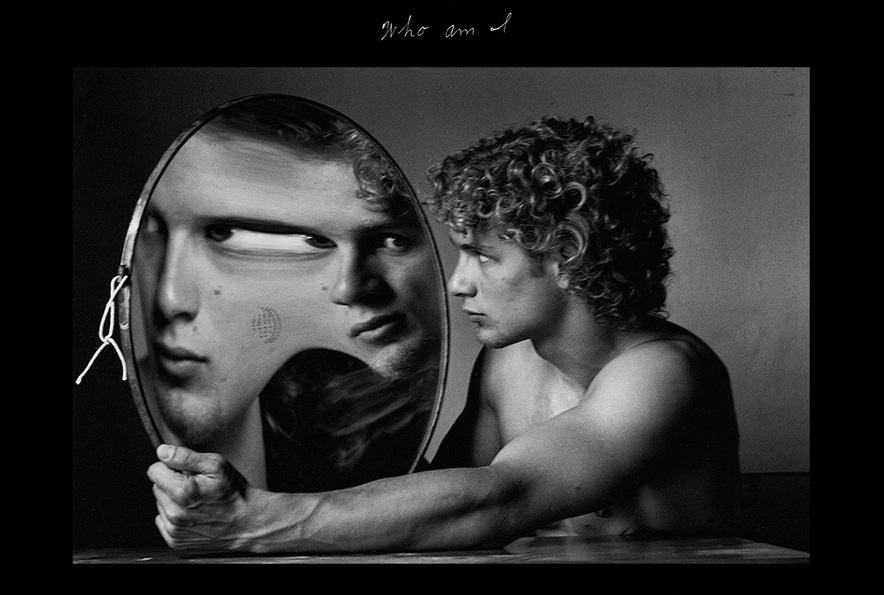
Duane Michals once said something that I recall when I view nearly any photograph: Photographers never photograph what they can't see, and of course the most important things are what you can't see. It's what you feel. What you feel is much more important than what you can see. And so that is why I had to write—why I had to find other ways of expressing myself." To see a photograph not as a captured image of what is or what was... but as a portal, an entryway into what cannot be seen, what is magical, what is beyond, what is felt. The photos of Duane Michals are always journeys. Oftentimes we meet him. Sometimes we encounter ourselves. The mirrors, the double exposures, the symmetry, and the play of image/text... all an invitation from Baudelaire: Là, tout n'est qu'ordre et beauté, Luxe, calme et volupté. 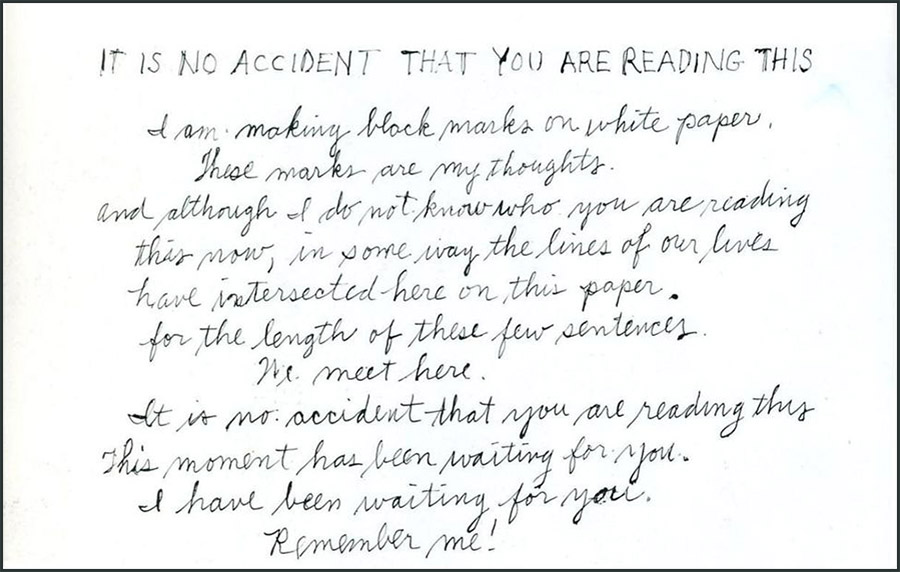 ...
...
 ...
...The Cyrillic Letter Ж
January 5, 2026
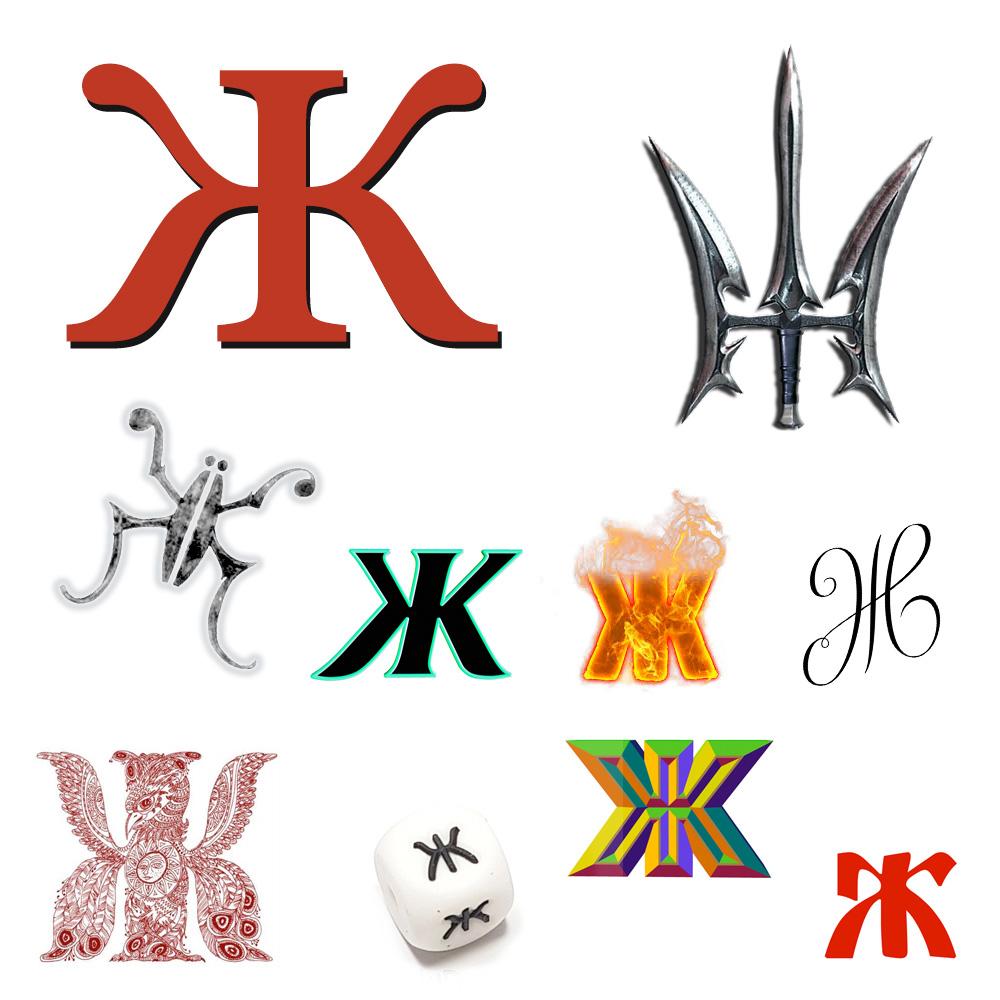
I have a friend named Kace who adores the Cyrillic letter ж. Kace writes many letters to me, and early on in our correspondence, he ended each letter very simply: Love, Kace. Over time though, this became Love, K which evolved into LK, but as he began to write LK very quickly, this eventually morphed into the shape of the magnificent Cyrillic letter ж which (as I said above) he absolutely loves. For those interested, it is pronounced “zh” as in Zhivago. Kace loves how it resembles a sword and shield or, more sublimely, a lovely little butterfly that takes flight from writer to reader. And thus, now, each of his letters ends with a ж —shorthand for— Love Kace ...
Sunsets and Sugimoto
December 12, 2025
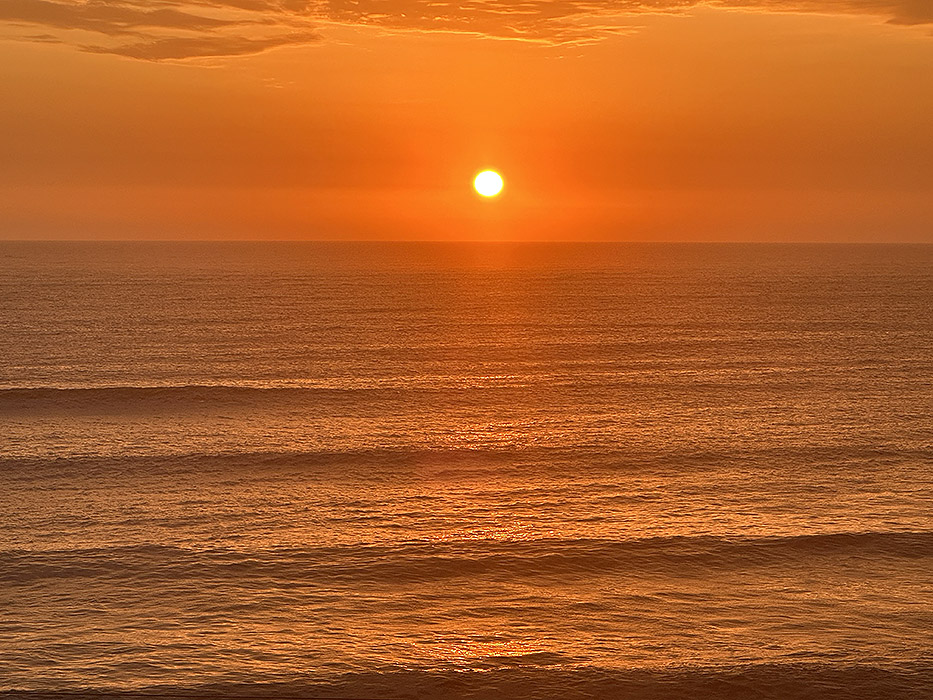
As soon as I arrived in Huanchaco, Peru, I knew I was going to be transformed into some sort of demonic Hiroshi Sugimoto, for the daily Pacific sunsets were so stunning, I simply had to photograph each one, multiple times, each day. Sunsets, like the sea I suppose, have a kind of quietude or redundancy or even boredom about them. I mean, really. How many sunsets can you witness in a lifetime? But when your soul-strings are plucked by the sound of the surf, when people dance on the beach, when the fresh food is served, then each sunset is a miniature glimpse of the divine. Hence: The daily photo ritual. 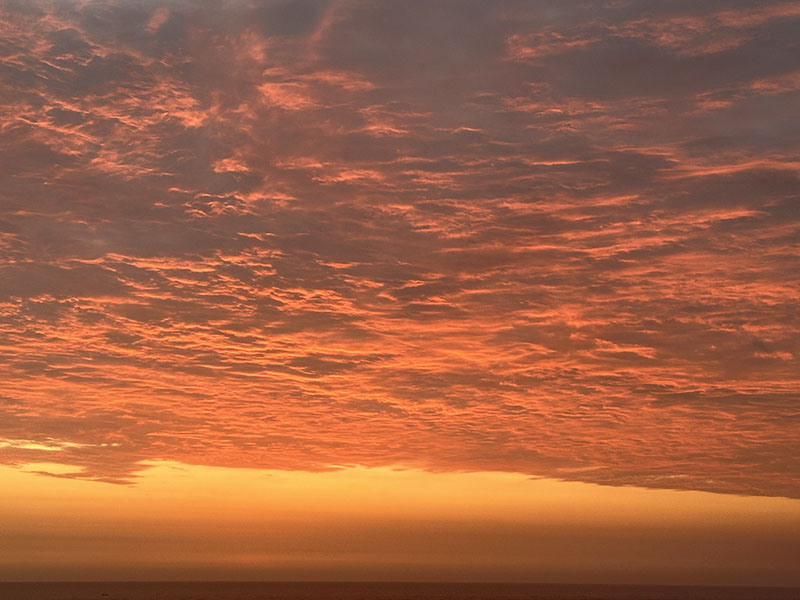
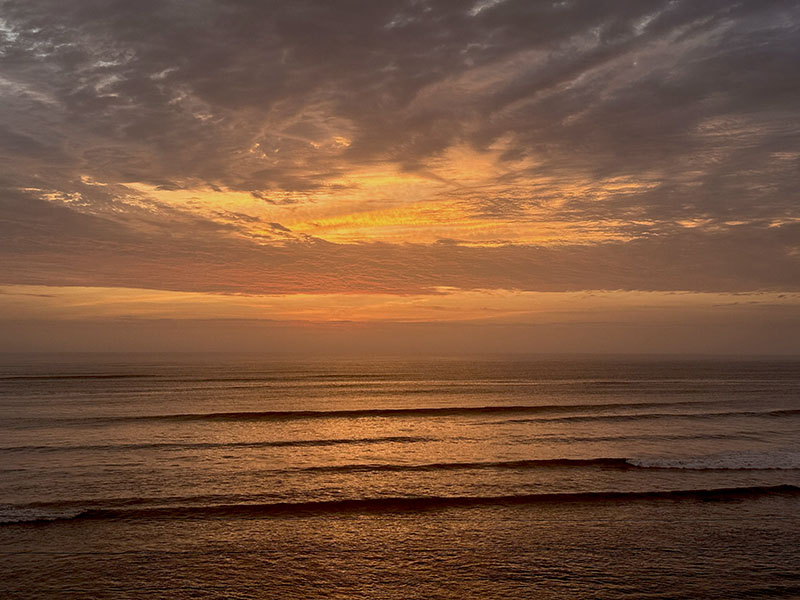
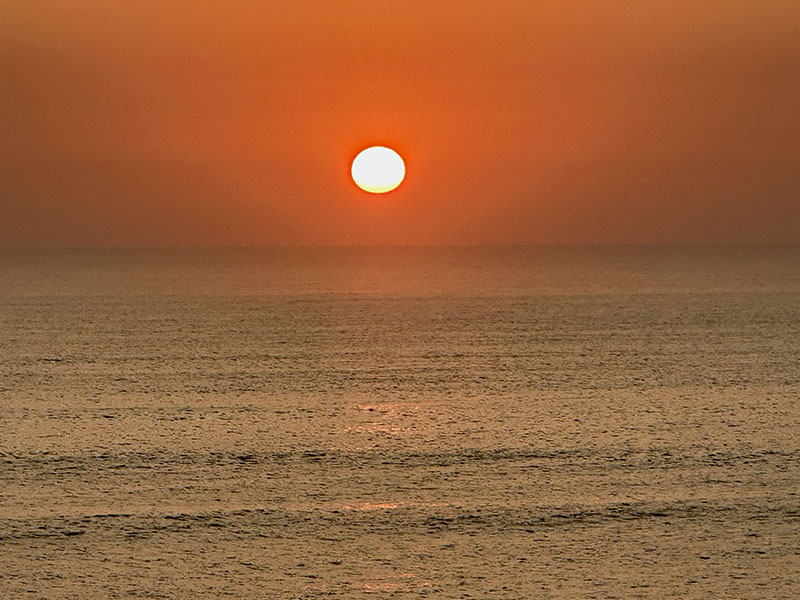
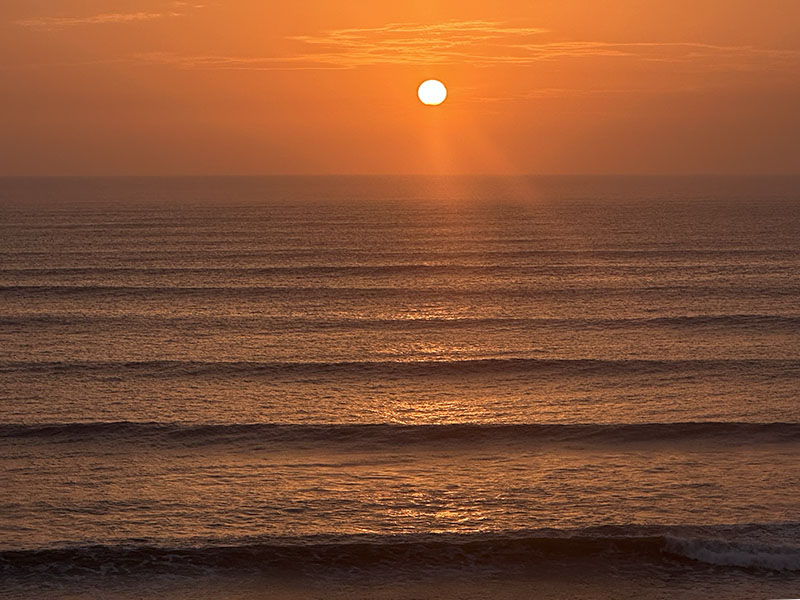 ...
...



 ...
...Huanchaco
November 11, 2025
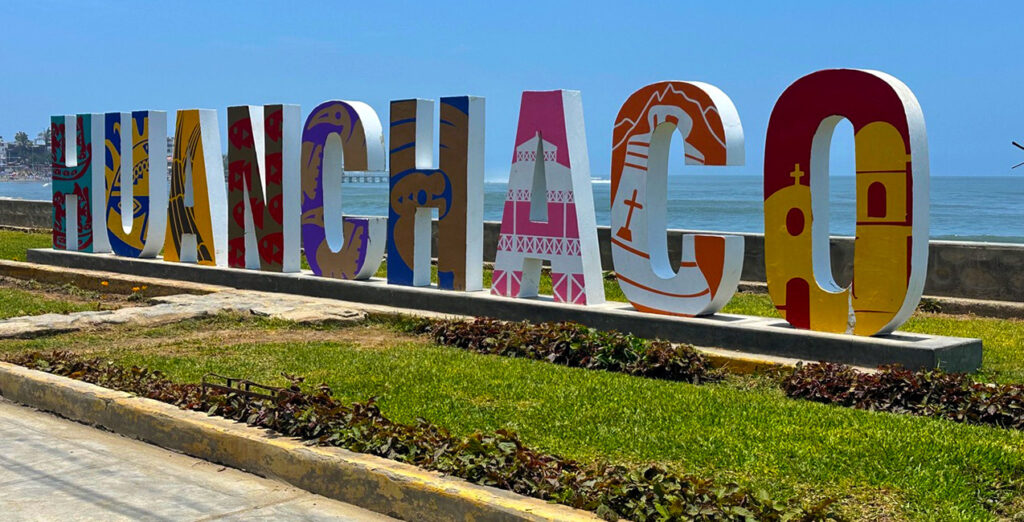
Humbly nestled on the Pacific coastline of Peru, just north of Trujillo, Huanchaco is a lovely friend... a small surfer town without much going on except a continual surf, delicious food, and incredibly warm people. If a town can be a friend, Huanchaco is a best friend. Home to ceviche and surfing, both dating back thousands of years, with surfing having got its start with the original reed boats which are still so popular, Huanchaco actually possesses a secret violence. The undertow is brutal and the tides strong. One enjoys the beach and its wonders with a kind of silent awe. 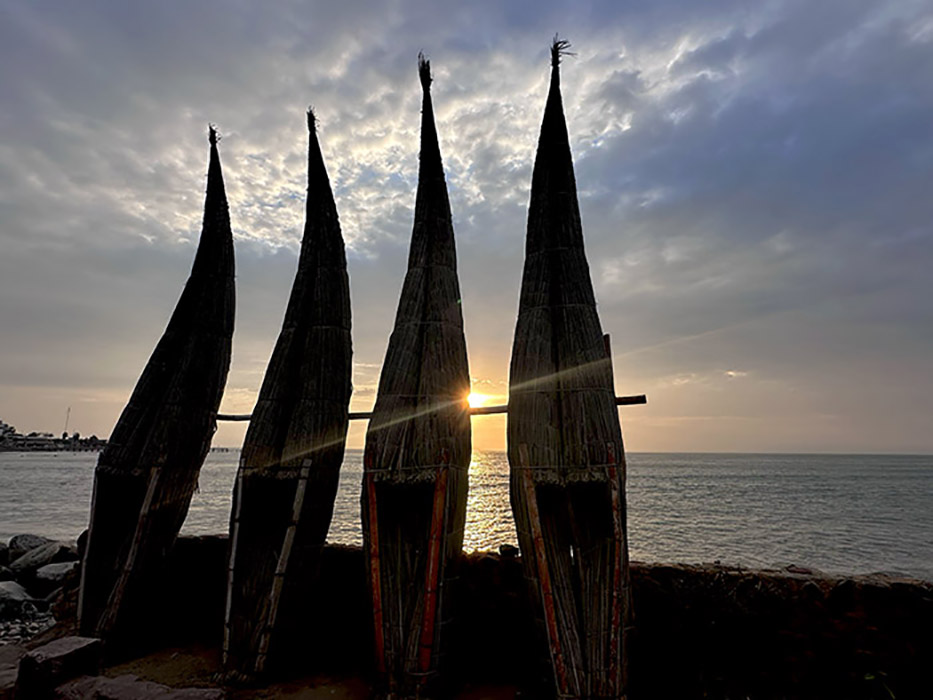
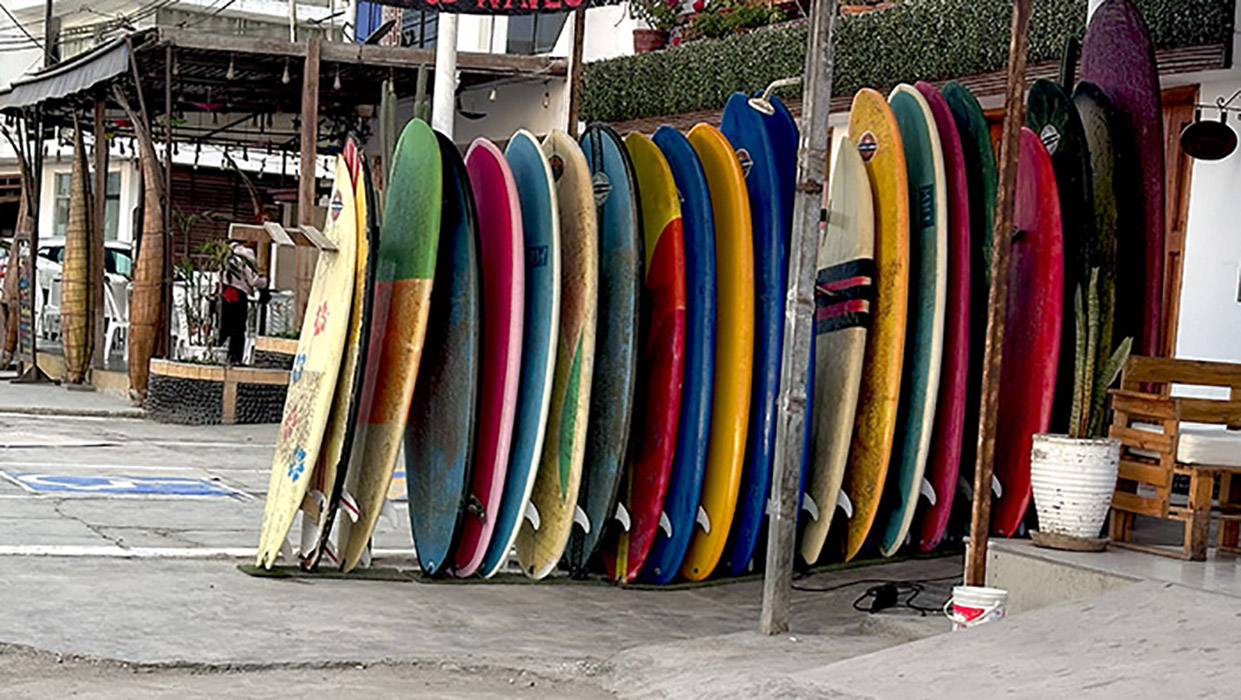
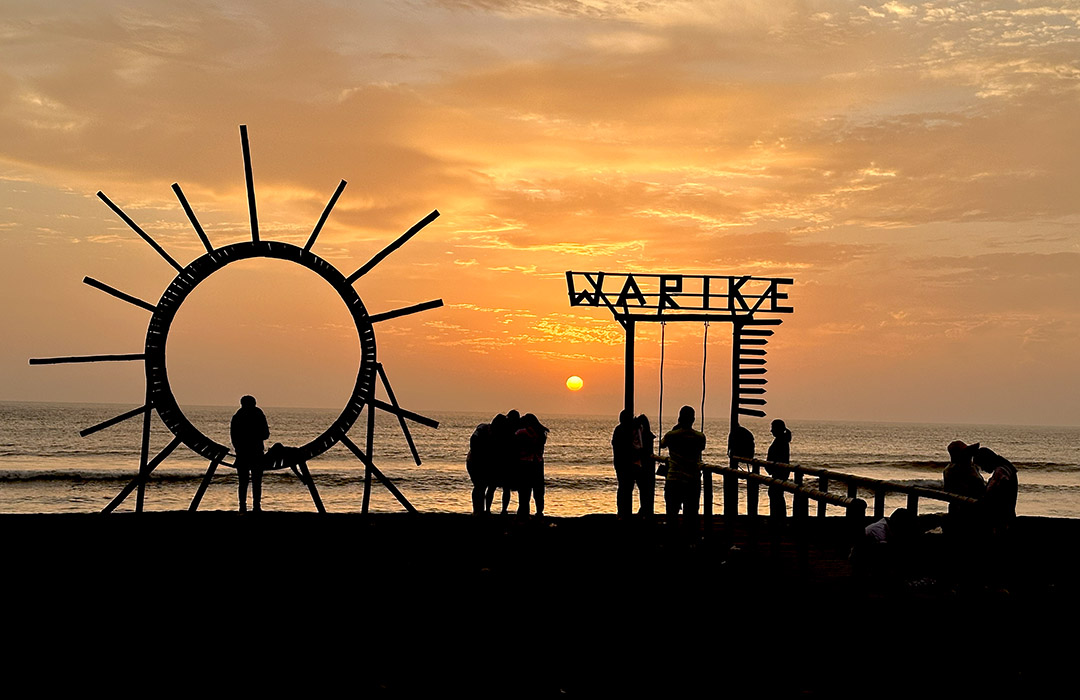 ...
...


 ...
...Chiric Sanango
October 10, 2025

With its lovely purple flowers, Chiric Sanango is a small tree or shrub native to the Amazonian region. It is known as Abuelo: the grandfather master plant—wise, shrewd, patient, powerful. Chiric means itchy or tingly, and the effects can be a potent electric charge, freezing chills, or a calming numbness. Joints and muscles often feel instantly improved, but the true effects are longer term, a slow yet powerful new perception: An opening of the heart often sensed as a restlessness for whom is one suddenly to love? Soon there is resilience. Over time, there is transformation ...
Dystopia — The Old Airport in Lima, Peru
September 29, 2025

Arrival in Lima at 9:30pm at the airport that I know very well. Yet... suddenly... total disorientation sets in. Nothing is as it is supposed to be. Nothing is as it was. Like a creepy parallel universe, the old airport has been replaced by a new one, and I am now at the old Costa del Sol Hotel, my reservation not having been accepted at the new one. I awake the next morning. Abandoned long-term parking lots. Empty terminals. A strange dystopia except for a Listo! mini market back by the old priority check-in. Makes me wonder how much of my life is, actually, like this: There I am, walking across an empty parking lot to nowhere ...
Surf Rider
August 8, 2025
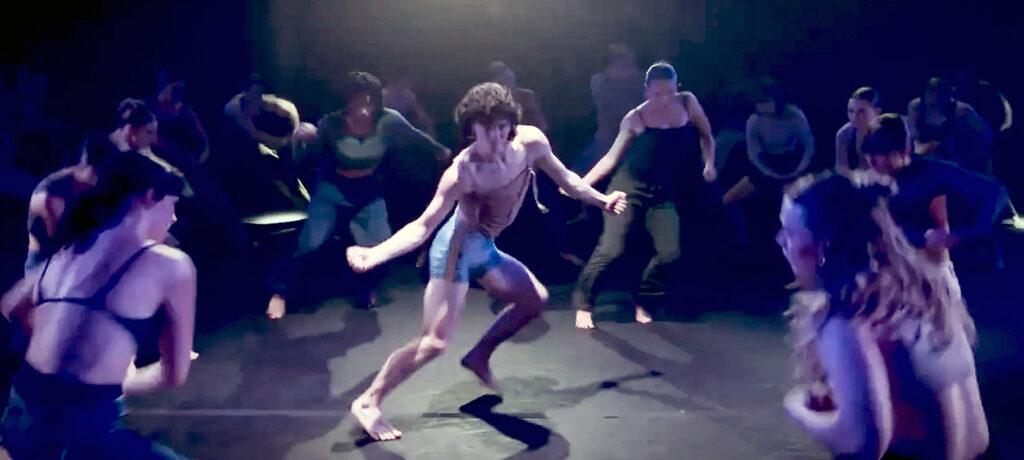
Emily Wilson Reads from The Odyssey
July 14, 2025
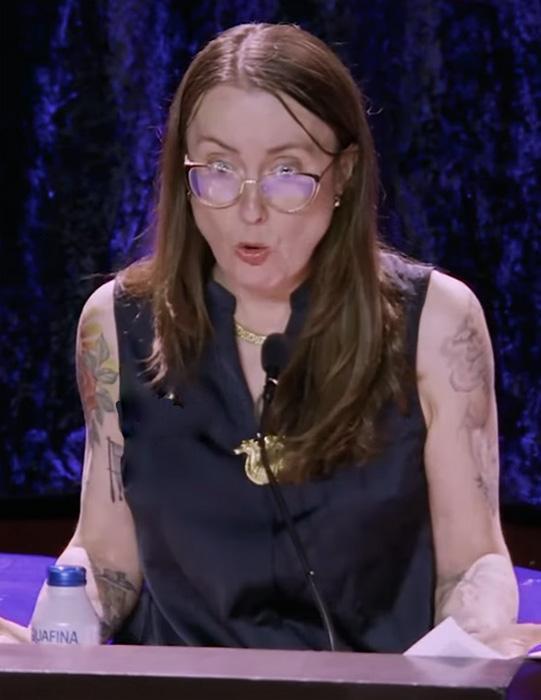
Season in Hell. An Exhibition by Bill Travis.
June 5, 2025
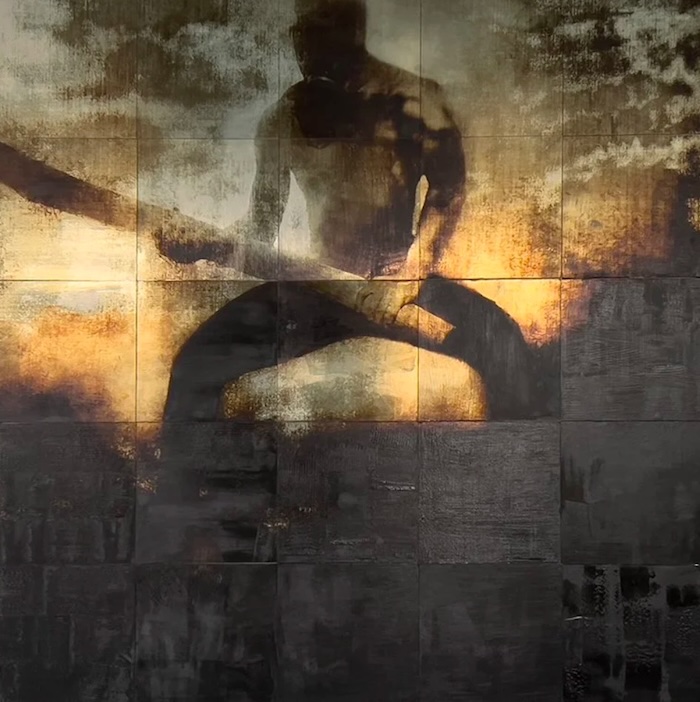
I have been fascinated by artist Bill Travis for several years now, admiring both his unique use of media but also the intense, strong masculine images. Check out his enchantingly illuminated male subjects framed in 19th-century union cases which I featured back in the fall of 2021. This new series hammers the skull with a brutality and violence that is reminiscent of Goya. The landscapes are stark—monochromatic and on fire. The men are strong, of military might, wielding heavy weapons and ready to kill. As with previous pieces, these are intensely physical, but with this series, there is less eroticism and more anguish, more violence. 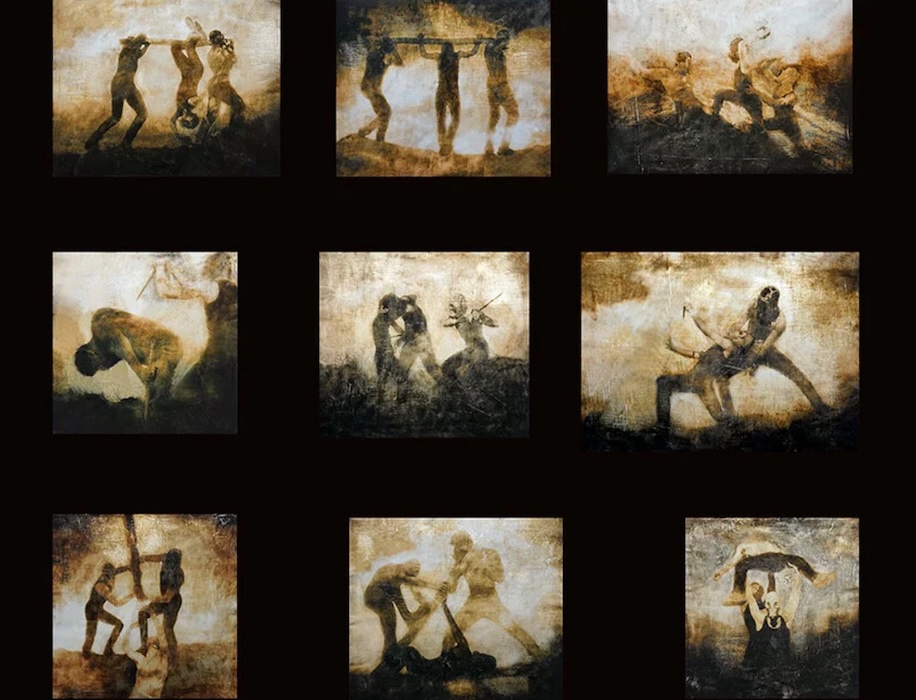 ...
...
Visit: billtravis.art
Bill explains:
Seeing a great society descend into autocracy is extremely painful. As an artist, I feel compelled to put that pain into images. The scenes of violent conflict and remorse in this exhibition function as visual metaphors of the soul in turmoil. I have been working on this subject for six years and have created upwards of fifty images. Here, for the first time, I am exhibiting eleven large pictures from the series. Mounted on mirrors, they are particularly responsive to light and change over the course of a day, setting in motion a dynamic that speaks to our own struggle with darkness. The title, A Season in Hell, comes from Arthur Rimbaud’s poem of the same name. The world he knew 150 years ago has long since faded into history, but the raw emotion of his work is as powerful as ever. I draw inspiration from his ability to transcend a moment in time and explore the darkness that lies beneath the surface.
 ...
...Kafka-Kandinsky
April 22, 2025
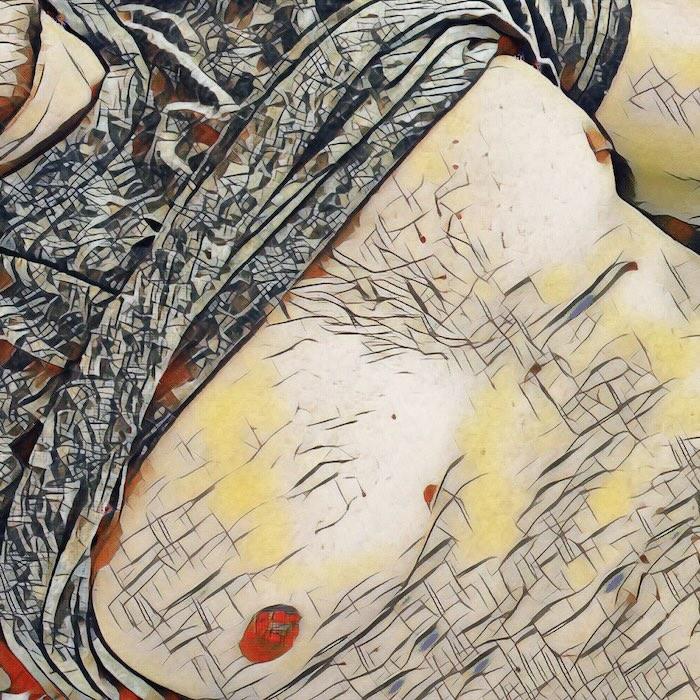
A Kafka Metamorphosis— One morning, when I woke from troubled dreams, I found myself transformed in my bed into a Kandinsky painting. I lay on my scratchy canvas-like back, and if I lifted my head a little I could see my red and yellow torso, slightly domed and divided by arches—as if Wassily had been up all night turning me into a work of art. One morning, when Gregor Samsa woke from troubled dreams, he found himself transformed in his bed into a horrible vermin. He lay on his armour-like back, and if he lifted his head a little he could see his brown belly, slightly domed and divided by arches into stiff sections. 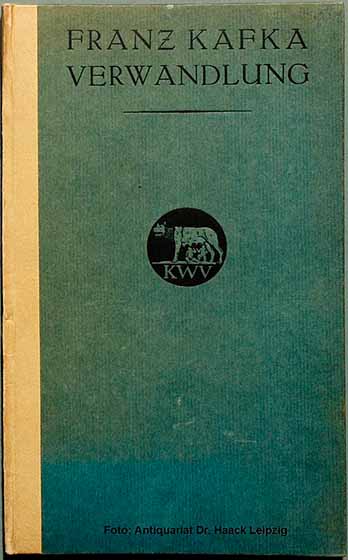 ...
...
 ...
...